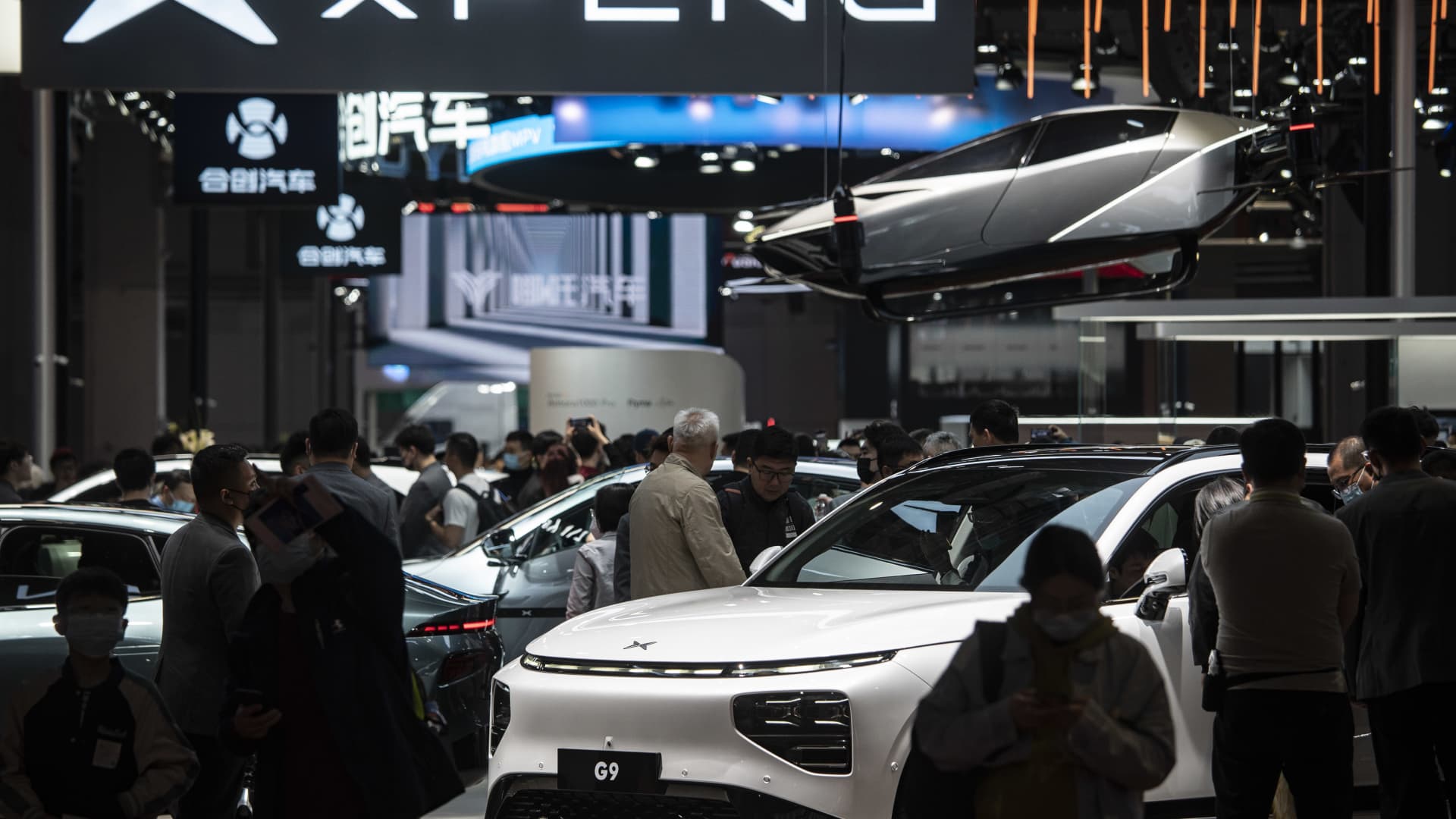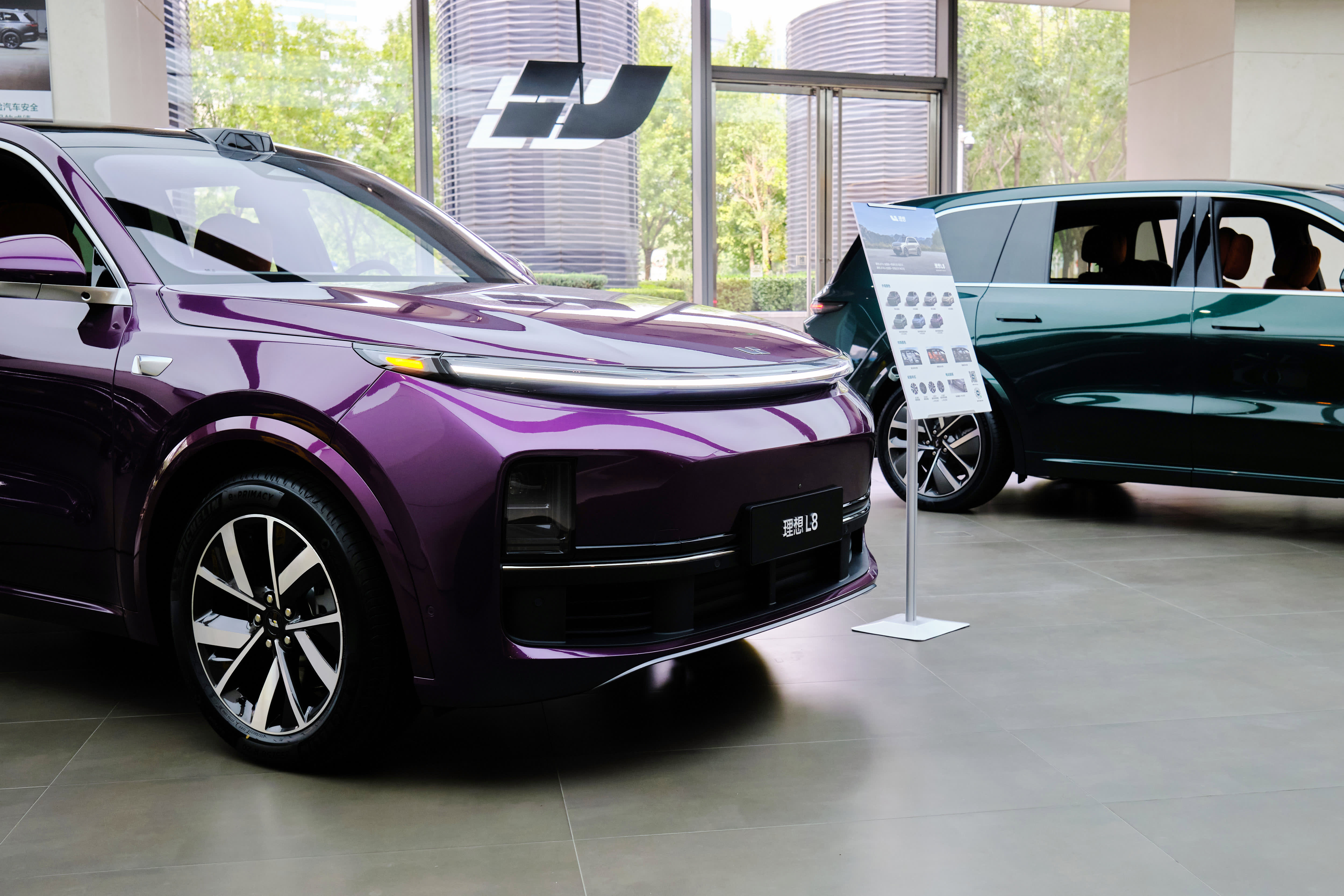Global electric vehicle makers are tapping advanced technology to vie with each other and domestic brands in the intensively competitive Chinese market.
China is the world’s largest EV market with 5.9 million units sold in 2022, capturing 59% of EVs sold globally, according to Canalys. Counterpoint Research data showed that domestic brands command 81% of the EV market, with BYD, Wuling, Chery, Changan and GAC among the top players.
related investing news
“China’s domestic brands are leading the market in the development and implementation of advanced assisted driving systems, capitalizing on their early-entry advantages in the electric and intelligent vehicle sector,” research firm Canalys said in a recent report.
“These brands have an edge over other joint ventures in the planning and execution of smart assisted driving systems.”
BofA Securities in a May report said it expects China to still be the world’s largest EV market in 2025, standing at 40%-45% market share.
“China auto makers are accelerating vehicle platform, technology upgrade or innovation, leading to outstanding user experience. China EV products are much more competitive than before, and China will continue to see EV penetration expanding, in our view,” said the BofA Securities analysts.
But these global players are now stepping up their efforts.
On Friday, BMW China announced that it is accelerating the development of hands-free autonomous driving features, also known as Level 3 or L3 functions. BMW China said it plans to roll those out by end of 2023 or early 2024 and will ensure compliance with local regulations.
L3 autonomous driving has not been widely approved in China, though some companies including domestic EV maker Xpeng has been authorized to test the technology.
The Chinese market is growing at an unprecedented pace. Toyota will also work together as a group to reform how we work & think to survive in China.Tatsuro UedaCEO of the China Region, Toyota
Last week, Germany’s Volkswagen Group said it is investing approximately $700 million in Xpeng and taking a 4.99% stake in the company.
“We are now accelerating the expansion of our local electric portfolio and at the same time preparing for the next innovation step,” Ralf Brandstätter, Volkswagen AG board member for China, said in a company statement.
Volkswagen and Xpeng will co-develop two new EVs that will incorporate its advanced driver-assist software for the Chinese market and aims to roll them out in 2026.
Intense competition
Tesla and Chinese EV brands are promoting self-driving tech to attract buyers — with an eye on full autonomous driving.
For example, BYD is partnering with Nvidia and Horizon Robotics to develop autonomous driving technology. On Monday, Chinese automaker Leapmotor told reporters it developed a new platform and aims to license it to other automakers to make intelligent EVs. On the same day, Japanese automaker Toyota said it will boost its development of EV technology, in a bid to compete in the Chinese market.
“The Chinese market is growing at an unprecedented pace. Toyota will also work together as a group to reform how we work & think to survive in China,” Tatsuro Ueda, CEO of China for Toyota, said in a company statement.
“By promoting local development … we will attempt to develop and provide competitive products that can satisfy Chinese customers at a fast pace.”





cost stromectol – atacand without prescription buy tegretol 400mg for sale
purchase absorica generic – isotretinoin 40mg pill buy zyvox online
where to buy amoxicillin without a prescription – cheap amoxicillin online buy generic combivent for sale
order zithromax 500mg pills – bystolic 5mg cost buy bystolic generic
order omnacortil 5mg pill – order generic progesterone 200mg prometrium 100mg without prescription
vibra-tabs over the counter – monodox online buy purchase glucotrol online
buy semaglutide tablets – order vardenafil 20mg generic order generic periactin 4mg
order tizanidine 2mg generic – hydroxychloroquine cheap purchase microzide without prescription
order atorvastatin 40mg sale – purchase amlodipine sale buy generic lisinopril online
buy prilosec 10mg sale – atenolol 100mg usa buy tenormin 50mg pills
clarinex where to buy – order claritin 10mg online priligy 90mg usa
buy zovirax 800mg online – purchase allopurinol order crestor 10mg generic
purchase domperidone generic – cheap motilium 10mg cyclobenzaprine ca
buy cheap domperidone – flexeril over the counter buy generic flexeril for sale
inderal 10mg pill – cheap inderal 20mg buy cheap generic methotrexate
purchase levofloxacin pill – levaquin 500mg over the counter order generic ranitidine
order nexium 40mg for sale – buy topamax 100mg generic purchase sumatriptan generic
buy mobic 7.5mg generic – oral mobic 7.5mg flomax 0.2mg ca